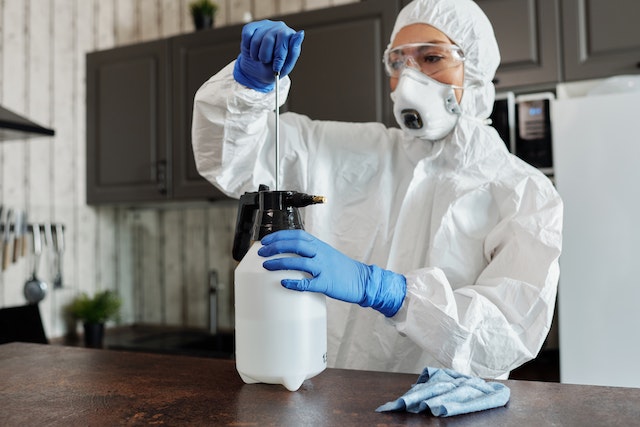As a healthcare professional, I have seen firsthand the impact of antimicrobial resistance (AMR) on patient outcomes. The rise of AMR has become a global health crisis, posing a serious threat to the treatment and prevention of infectious diseases. In this article, I will discuss what AMR is, how it occurs, its global impact, and ways we can prevent it.
Introduction to Antimicrobial Resistance (AMR)
Antimicrobial resistance is the ability of bacteria,
viruses, fungi, and parasites to resist the effects of antimicrobial drugs,
such as antibiotics. This occurs when these microorganisms evolve and adapt to
the drugs designed to kill them, rendering the drugs ineffective. This
phenomenon has become a major public health concern as it poses a serious
threat to the treatment and prevention of infectious diseases.
Understanding Antibiotic Resistance
Antibiotic resistance is a type of AMR that specifically
refers to the resistance of bacteria to antibiotics. Antibiotics are drugs that
kill or inhibit the growth of bacteria. However, overuse and misuse of
antibiotics have led to the emergence of antibiotic-resistant bacteria. When
antibiotics are prescribed unnecessarily, or when patients do not complete
their full course of antibiotics, bacteria can survive and develop resistance
to the drug.
Causes of Antibiotic Resistance
The overuse and misuse of antibiotics are the main causes of
antibiotic resistance. Inappropriate use of antibiotics includes prescribing
antibiotics for viral infections, using outdated antibiotics, and prescribing
broad-spectrum antibiotics when narrow-spectrum antibiotics would suffice.
Patients who take antibiotics without a prescription or who do not complete
their full course of antibiotics also contribute to antibiotic resistance.
Another cause of antibiotic resistance is the use of
antibiotics in agriculture. Antibiotics are given to animals to promote growth
and prevent infection. However, this practice has led to the emergence of
antibiotic-resistant bacteria in animals, which can be transmitted to humans
through the food chain.
How Antibiotic Resistance Occurs
Antibiotic resistance occurs when bacteria mutate or acquire
resistance genes that allow them to survive exposure to antibiotics. These
mutations or genes can be passed down from generation to generation, allowing
the bacteria to become more resistant over time. In addition, bacteria can
exchange genetic material with other bacteria, allowing them to acquire
resistance genes from other species.
The Global Impact of Antibiotic Resistance
Antimicrobial resistance is a global issue that affects all
countries, regardless of their level of development. According to the World Health
Organization (WHO), at least 700,000 people die each year from drug-resistant
infections. If no action is taken, this number could rise to 10 million by
2050, which would surpass the number of deaths from cancer.
Antibiotic resistance also has economic implications. The
cost of treating drug-resistant infections is significantly higher than
treating infections that are susceptible to antibiotics. In addition,
antibiotic resistance can lead to longer hospital stays, more severe illnesses,
and increased mortality rates.
The Role of Healthcare Providers in Addressing AMR
Healthcare providers play a critical role in addressing
antimicrobial resistance. They must prescribe antibiotics appropriately, only
when necessary, and for the appropriate duration. They must also educate their
patients on the proper use of antibiotics and the risks associated with
antibiotic resistance.
Healthcare providers must also implement infection
prevention and control measures to reduce the transmission of drug-resistant
infections. This includes proper hand hygiene, appropriate use of personal
protective equipment, and proper cleaning and disinfection of the healthcare
environment.
Ways to Prevent Antibiotic Resistance
Preventing antibiotic resistance requires a multifaceted approach.
The following are some ways to prevent antibiotic resistance:
·
Reduce
unnecessary antibiotic use: Prescribe antibiotics only when necessary and
for the appropriate duration. Avoid prescribing antibiotics for viral
infections.
·
Educate
patients: Educate patients on the proper use of antibiotics and the risks
associated with antibiotic resistance. Encourage patients to complete their
full course of antibiotics.
·
Implement
infection prevention and control measures: Implement proper hand hygiene,
personal protective equipment, and environmental cleaning and disinfection to
reduce the transmission of drug-resistant infections.
·
Use
antibiotics wisely in agriculture: Limit the use of antibiotics in
agriculture and only use antibiotics when necessary.
Innovations in Antibiotic Development
Innovations in antibiotic development are also necessary to
address antimicrobial resistance. The development of new antibiotics is slow,
and the pipeline for new antibiotics is limited. However, there are some
promising developments in the field, such as the use of bacteriophages, which
are viruses that infect and kill bacteria, and the use of CRISPR technology,
which can target and destroy specific genes in bacteria.
Conclusion: The Urgent Need to Address AMR
Antimicrobial resistance is a global health crisis that
requires urgent action. Healthcare providers, patients, policymakers, and the
public must work together to prevent the emergence and spread of drug-resistant
infections. By using antibiotics wisely, implementing infection prevention and
control measures, and supporting the development of new antibiotics, we can
preserve the effectiveness of these life-saving drugs for future generations.
CTA:
As a healthcare professional, it is my duty to educate my
patients on the proper use of antibiotics and the risks associated with
antibiotic resistance. I encourage you to do your part in preventing the spread
of drug-resistant infections by only taking antibiotics when necessary and
completing your full course of antibiotics. Let's work together to address this
urgent global health crisis.

Infraroodverwarming wordt per zone aangestuurd waardoor je op een (kosten) efficiënte manier de temperatuur per vertrek kunt regelen. Infraroodverwarming is flexibel omdat je naast het zonegericht regelen van het klimaat in huis ook kunt werken met infrarood panelen, ideaal om bijvoorbeeld om overdag alleen de werkkamer te verwarmen.
ReplyDeleteYou can visit website Redwell Infrarood
Do you want to stay updated with amazing YouTube content? We have created a special WhatsApp group where you can get subscribers for free.
ReplyDeleteJoin Now Active Youtube Subscribe WhatsApp groups [ [ Youtube Subscribe WhatsApp Group Links].]